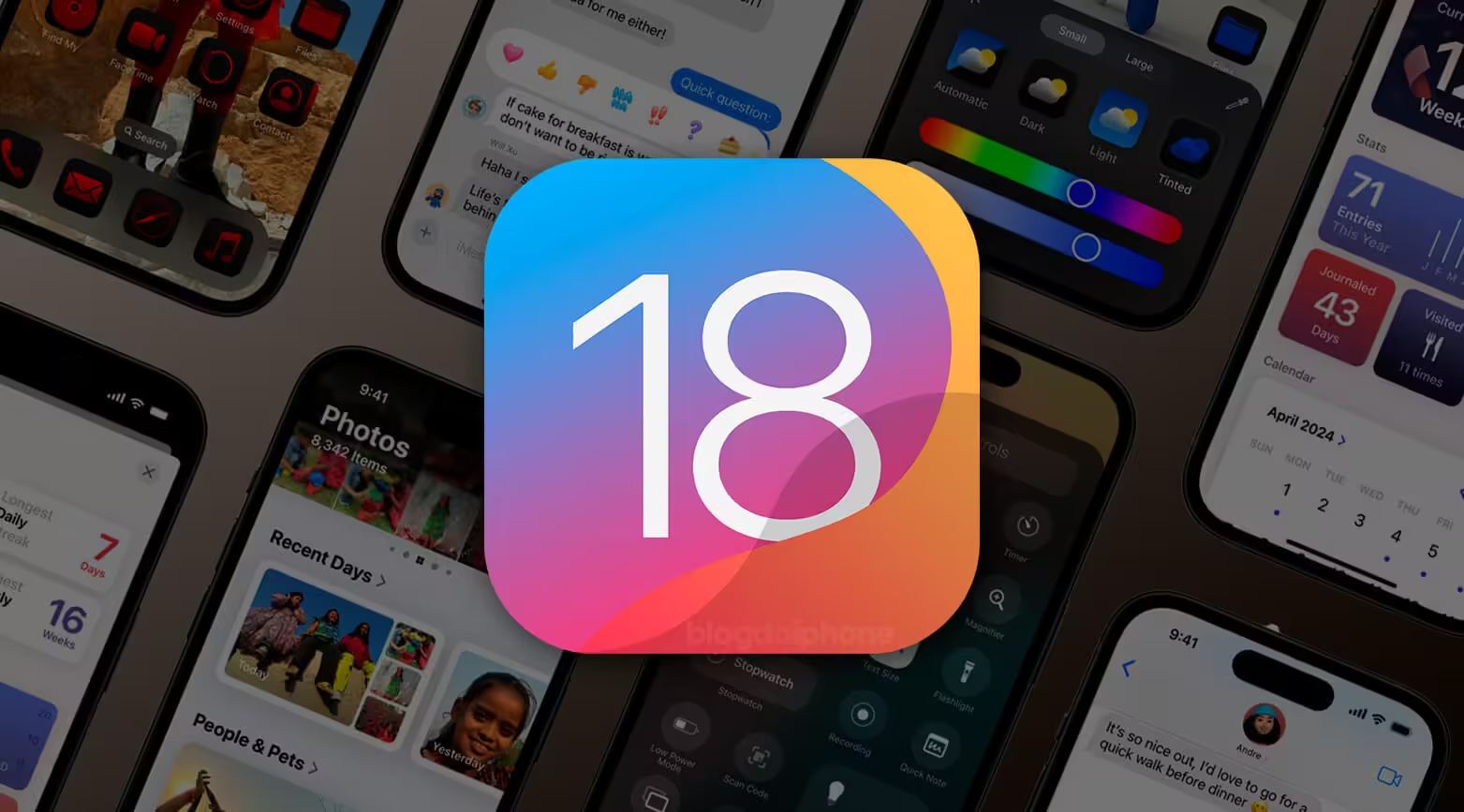As Apple rolls out iOS 18, developers are greeted with a range of powerful new APIs, designed to push the boundaries of mobile development. These additions are not just about upgrading app functionality—they are fundamentally changing how developers think about performance, user experience, and privacy. In this post, we’ll explore the key APIs introduced in iOS 18 and how they are shaping the future of iOS app development.
Key New APIs in iOS 18
Apple’s focus in iOS 18 continues to be on optimizing user experiences, with APIs aimed at improving app performance, enhancing security, and leveraging cutting-edge technologies like AI and AR. Let’s break down the most impactful APIs that developers need to pay attention to in 2024:
1. SwiftData API for Enhanced Data Handling
With SwiftData, Apple introduces a more efficient way to handle data within iOS apps. This API is designed to work seamlessly with Swift, allowing developers to create complex data models with less boilerplate code. By integrating with Core Data, SwiftData enables faster data fetching, easier management of persistent storage, and better performance when dealing with large datasets.
For developers working on data-driven apps—whether it’s for e-commerce, finance, or social media—the SwiftData API is a game-changer. This reduces code complexity, making apps run more smoothly and improving user satisfaction.

2. Augmented Reality with RealityKit 3.0
RealityKit 3.0, introduced in iOS 18, expands Apple’s AR capabilities, empowering developers to build more immersive augmented reality experiences. With advanced real-time rendering and object occlusion features, RealityKit 3.0 lets developers blend virtual content more naturally into the real world.
For apps that rely on AR experiences—from gaming and education to retail—this new API offers enhanced realism, allowing users to interact with virtual objects in ways never before possible. Combined with the power of ARKit 7, apps can now track multiple objects and offer more dynamic, responsive experiences.

3. Core ML 4.0: Optimizing AI Performance
Apple continues to push the boundaries of machine learning with Core ML 4.0. This updated API enables on-device machine learning, ensuring that complex AI models can run faster and more efficiently without needing cloud resources. Developers can now train models directly on the user’s device, improving privacy and reducing latency.
For applications utilizing AI, such as photo and video processing apps, voice recognition, or predictive text, Core ML 4.0 provides powerful tools to enhance performance while keeping data private. Developers can also take advantage of Create ML, Apple’s suite for building and optimizing machine learning models, which has been updated to support new model types and training workflows.

Privacy APIs: A Stronger Focus in iOS 18
As privacy continues to be a priority for Apple, iOS 18 brings new privacy APIs designed to give users even more control over their data. With features like App Privacy Reports and Private Relay, developers are encouraged to adopt practices that prioritize user privacy. New privacy APIs ensure that app developers provide clear transparency about how data is used and stored.
By integrating these privacy-first features, developers can build trust with users while adhering to stricter regulations such as GDPR and CCPA.

SwiftUI 4.0: Building the Future of iOS Apps
SwiftUI 4.0, introduced alongside iOS 18, comes with a host of new features that make building native UIs faster and more flexible. With new layout APIs, enhanced animations, and dynamic color schemes, developers can create visually stunning apps that adapt seamlessly to various devices and user preferences.
This iteration of SwiftUI is particularly useful for developers looking to support cross-platform apps with minimal code duplication. Whether you’re targeting iPhone, iPad, or macOS, SwiftUI 4.0 provides the tools to build a unified experience across Apple’s ecosystem.

Tips for Adapting to iOS 18
Here are some key strategies to help developers make the most of iOS 18’s new APIs:
1. Leverage RealityKit for AR Innovation: If your app includes AR elements, use RealityKit 3.0’s advanced features to create richer and more engaging user experiences. Consider enhancing the UI with AR-based interactions.
2. Optimize Performance with Core ML: Implement Core ML 4.0 to run complex machine learning models locally. This will improve your app’s speed and reduce reliance on cloud resources, giving users faster results.
3. Utilize SwiftData for Seamless Data Handling: Integrate SwiftData for efficient data storage and management. The API’s tight integration with Core Data will streamline data operations, allowing you to focus on building great features.
4. Prioritize Privacy Features: Incorporate Apple’s new privacy APIs into your app to ensure compliance with data privacy regulations and build user trust. Use App Privacy Reports to communicate clearly how user data is handled.
Conclusion
The introduction of powerful new APIs in iOS 18 opens up exciting possibilities for mobile developers. From advanced data handling and augmented reality to machine learning and enhanced privacy, these new tools empower developers to build apps that are faster, more secure, and more immersive. As we move through 2024, mastering these APIs will be crucial for staying ahead in mobile development.
By adopting these APIs early and integrating them into your app’s architecture, you’ll ensure your iOS applications are well-equipped to thrive in a competitive and privacy-conscious market.

